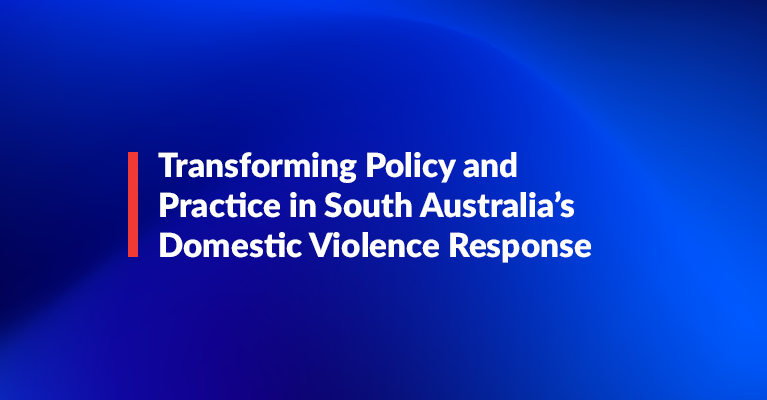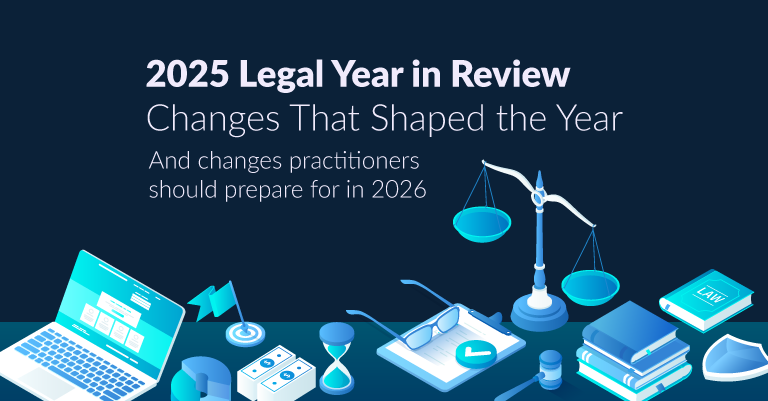Introduction Artificial intelligence is reshaping the ways organisations manage the entire employment lifecycle, from screening resumes and identifying potential candidates to supporting employee development...
Authored by Jennifer Raphael , Senior Legal Writer, Construction. 2026 is shaping up to be a pivotal year for construction law in Australia. Across multiple jurisdictions, governments are moving from...
Across Australia and New Zealand, legal professionals are embracing a new era of AI-powered transformation. At the 2025 LexisNexis Legal AI Showcase , hundreds of attendees tuned in to see how Lexis...
Authored by Seeta Bodke , Head of Product - Pacific, LexisNexis® Legal & Professional At LexisNexis, our mission is to advance the rule of law through responsible innovation. The launch of Protégé General...
As 2025 draws to a close, Australia’s legal landscape reflects another year of reform focused on accountability, fairness, and technological adaptation. From mandatory merger notifications and franchising...

Capital Monitor™ Editorial by Keely Garcia
A single week in November 2023 saw four women lose their lives in South Australia amid domestic and family violence, an alarming record across any Australian jurisdiction. Shaken by a series of domestic violence-related deaths, the public outcry called for an inquiry into systemic failures that left victim-survivors trapped and voiceless. Fast-forward to 19 August 2025, Royal Commissioner Natasha Stott Despoja AO released With Courage: South Australia's vision beyond violence. A 700-page report outlines 136 recommendations aimed at overhauling how the State prevents, responds to, and recovers from domestic, family, and sexual violence.
South Australian Premier Peter Malinauskas declared in late 2023 the launch of a Royal Commission, which commenced on 1 July 2024, with former Senator and gender equality advocate Natasha Stott Despoja appointed as Commissioner. The inquiry was tasked with examining matters associated with five key pillars: prevention, early intervention, response, recovery and healing, and coordination. Its terms of reference emphasised forensic review of policies and data alongside meaningful engagement with victim-survivors through listening sessions, public hearings, and written submissions.
Throughout the Royal Commission, Stott Despoja balanced rigorous policy scrutiny with hundreds of heartfelt testimonies and committed to a blueprint that would blend structural reform with survivors’ lived experiences. In 12 months, the Commission held 48 public hearings and 173 listening sessions; collected 381 submissions and 800 survey responses, and engaged with 5,000 people, 1,300 being individuals with lived experience. From metropolitan Adelaide to remote communities like the APY Lands and Coober Pedy, the inquiry sought to hear from those too often left unheard. The Commission placed high importance on the experiences of victim-survivors, children and young people, culturally diverse communities, people with disabilities, and those in regional and remote areas.
The Commission’s 136 recommendations span the five pillars, addressing legal, cultural, and service-delivery gaps. At the governance level, the report calls for the establishment of a standalone ministerial portfolio dedicated to domestic, family, and sexual violence. This would ensure focused leadership and accountability. Complementing this, a Senior Government Steward should be appointed to oversee the implementation of reforms, supported by a high-level committee of Chief Executives tasked with developing and executing a five-year Statewide Domestic, Family and Sexual Violence Strategy, embedding prevention at its core.
Legal reforms are central to the Commission’s recommendations. One of the most significant proposals is the criminalisation of coercive control to recognise the insidious nature of non-physical abuse. The report also advocates for electronic monitoring of high-risk domestic violence defendants placed on home detention bail, aiming to enhance victim safety. Within the justice system, South Australia Police is urged to elevate its domestic violence portfolio to a branch or service level and to implement mandatory training for officers to improve frontline responses.
At the national level, the report suggests that the newly established national Domestic, Family and Sexual Violence Commission conduct an audit of the family law system to identify and address systemic abuse. It also calls for the development of national media standards to guide responsible reporting on domestic, family, and sexual violence, aiming to reduce stigma and misinformation.
The report demands both legislative and practice-level shifts. The South Australian Government was quick to adopt seven recommendations, including the creation of the Domestic, Family and Sexual Violence ministerial portfolio and stewardship functions, and must now navigate amendments to the Criminal Law Consolidation Act 1935 to embed coercive control offences and extend bail-monitoring conditions for high-risk defendants. The report also proposes that the State Government develop and enact a standalone Family Violence Act to implement further legislative changes. Additionally, recommendations task the national Domestic, Family and Sexual Violence Commission with auditing the family law system for ‘systems abuse’. Lawyers will need to advise on an evolving regulatory landscape while ensuring victim-survivors can access intermediary support in family law and Domestic, Family, and Sexual Violence proceedings.
South Australia’s Commission drew heavily on Victoria’s 2015 Royal Commission into Family Violence, which demonstrated the pitfalls of reactive roll-outs and underscored the need for a resourced, staged implementation plan. Victoria’s emphasis on integrated data dashboards and coordinated governance structures finds echoes in South Australia’s call for a Domestic, Family, and Sexual Violence linked-data dashboard to inform policy and measure impact. Meanwhile, one-stop DFSV hubs have shown promise in reducing system navigation barriers, a model South Australia recommends replicating in regional and metropolitan centres. This comparative lens highlights that sustainable reform rests on cross-jurisdictional learning and continual adaptation. Queensland’s 2022 Women’s Safety and Justice Taskforce proposed similar court reforms and legislative changes. Yet South Australia’s model goes further by embedding formal, long-term oversight and integrating domestic violence response into broader public accountability frameworks.
The South Australian Royal Commission aligns with the Federal Government’s National Plan to End Violence Against Women and Children 2022-2032, a blueprint for tackling gender-based violence. State-based commissions help identify gaps in the plan and aid in proposing reforms. In this instance, the SA Commission has recommended a national audit of the family law system and national media reporting standards. As a result, these matters are now under review by the Federal Domestic, Family and Sexual Violence Commission.
As South Australia stands at a pivotal threshold, the 136 recommendations form more than a report; they constitute a living blueprint for safety, accountability, and healing. In the months ahead, new coercive-control provisions will progress through Parliament, specialist court pathways will be established, and cross-agency networks will be tested in regional and metropolitan centres. Success will be judged not by the passage of legislation alone but by the tangible reduction in harm: homes freed from fear, services that respond without delay, and communities united in shared responsibility.
The real test lies in the transition from blueprint to practice. Only through sustained oversight, seamless information-sharing, and a commitment to survivor-centred reform can the Commission’s vision be realised. If those entrusted with making change seize this moment, South Australia will move from crisis response to a culture of prevention, safeguarding generations yet to come.




